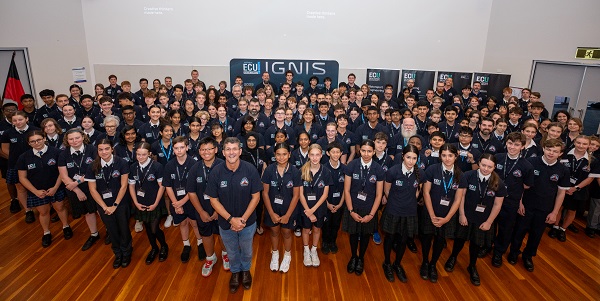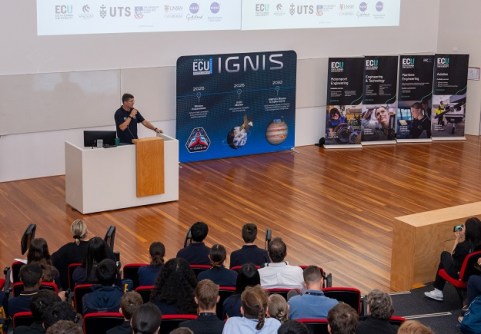
Edith Cowan University (ECU) is partnering with Western Australia high schools to offer students the opportunity to participate in real-world research that employs geospatial techniques.
Year 7 to 11 students from 23 high schools across Western Australia, including three schools from regional Western Australia, have been offered an internship program with the IGNIS project.
The IGNIS mission will be conducted over three stages, the first of which is the airborne survey of southwest Western Australia to map temperature signatures and lightning activity across the state.
The second stage would involve the launch of a 12U satellite to map and track thermal and lightning patterns from low-Earth orbit, while the third stage would involve a deep-space mission to study the interaction of solar activity and lightning on Jupiter and its moon Io.
The IGNIS student internship program will enable students to work directly with ECU School of Engineering academics and researchers, as well as aerospace industry professionals, NASA scientists and Aboriginal rangers.

The program will include immersive opportunities traditionally only found in university settings and enable students to become active contributors to the research.
In addition to teaching students how to conduct advanced data analysis and interpretation, the hands-on experience would also focus on all the research and mechanics necessary to ultimately understand what is required to build a satellite that will completement IGNIS project.
“This internship will allow students to interact with experience space professionals, learn from them and help make a difference to our communities suffering from bushfires every year,” said ECU School of Engineering, Executive Dean, Professor Paulo de Souza.
The student internship program will be hosted across six phases at the ECU Joondalup Campus between May and December, with the regional schools able to access the sessions remotely.
The IGNIS Project is a collaboration led by ECU, with The University of New South Wales in Canberra, The University of Adelaide, University of Technology Sydney (UTS), The University of Newcastle and the University of Alabama in Huntsville.






